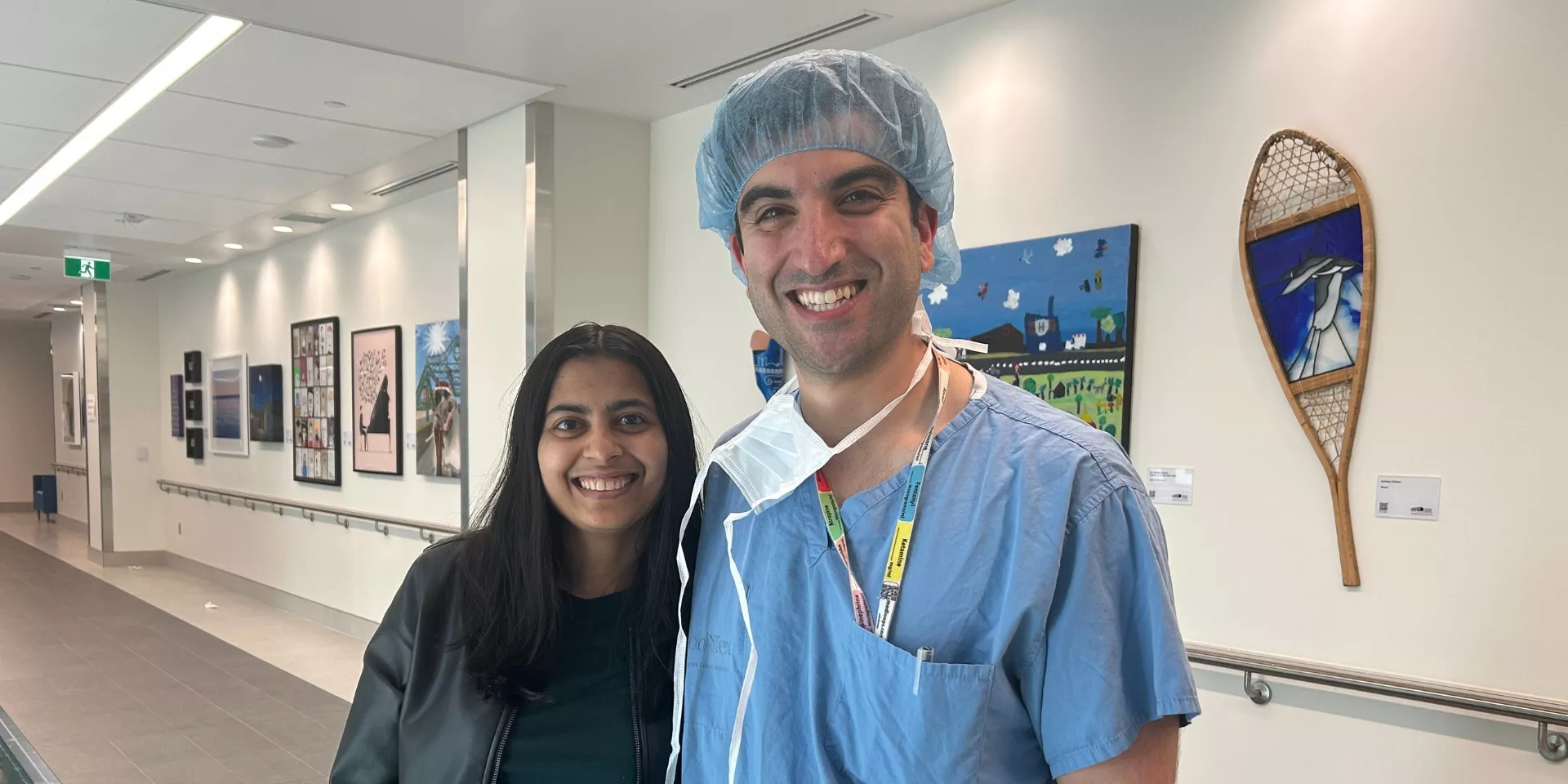Urooj Siddiqui came to Michael Garron Hospital for a kidney stone operation in December 2024. It was expected to be a straightforward procedure, but that changed when she had an extremely rare allergic reaction.
“After I’d been put to sleep, just after being administered the antibiotic, I went into anaphylactic shock,” says Urooj, who is in her 30s. She had never been allergic to any medication previously and had no other risk factors. “The anesthesiologist, Dr. Sattar, noticed my blood pressure plummeting and told the surgeon to halt the operation.”
Urooj’s blood pressure dropped dangerously low, putting her at risk of cardiac arrest.
Dr. Sattar and his colleagues responded quickly to the situation. “I immediately started to treat Urooj for anaphylactic shock," he says. "The surgeon examined her to rule out other potential issues. Another anesthesiologist joined us and we had anesthesia assistants there too. They all took on the roles that I was assigning them and doing them to perfection. Everyone in the room was profoundly helpful in aiding me get her blood pressure up.”
With her mother and partner waiting anxiously, Urooj was transferred to the intensive care unit (ICU). When she regained consciousness the next day, she learned what had happened during the operation.
She appreciates that Dr. Sattar’s care continued after she left the operating room.
“Dr. Sattar told me he was keeping an eye on my chart and even came to visit when I finally woke up in the ICU,” she says. “It was really kind of him.”
“In anesthesia, we tend to have very brief but meaningful interactions with patients before and after their operations,” says Dr. Sattar. “And if there’s a complication like this, I like to check on them on the hospital unit or in the ICU to make sure they’re recovering well.”
Training to be ready for the unexpected
Allergic reactions like Urooj’s occur only in about 1 in 10,000 surgeries, says Dr. Sattar. “It was such an unexpected event. I’m glad it turned out the way it did.”
Dr. Sattar had never encountered this reaction during a surgery before.
“This is something that we train for in anesthesia,” says Dr. Sattar, who is one of more than 20 anesthesiologists at Michael Garron Hospital. “It’s a very rare event, but we learn about it thoroughly and we run through simulations for it. So, when the real-life event happens, muscle memory kicks in because you’ve practised it so much.”
Dr. Sattar leads the anesthesia department’s training in our hospital’s Rands Family Simulation Centre, where they practise medical scenarios using actual equipment and lifelike mannequins. “I have a passion for simulation,” he says, “because it prepares us to be ready to go when there’s a rare event like this one.”
As for Urooj, the experience left her feeling reflective. “After being that close to death, I had a new perspective. What I really wanted to do was spend more time with my loved ones.”
When her operation was rescheduled, Urooj requested the same surgical team. This time everything went smoothly.
“I went to sleep, I woke up, and the team told me ‘this is exactly how it's supposed to be,’” she says. Noting that she’ll always be grateful for the care she received, she adds, “I want other folks to get the same good care that I did.”
Our hospital relies on support from people like you. To help our staff provide the best possible care for thousands of patients every day, please give at mghf.ca/donate
